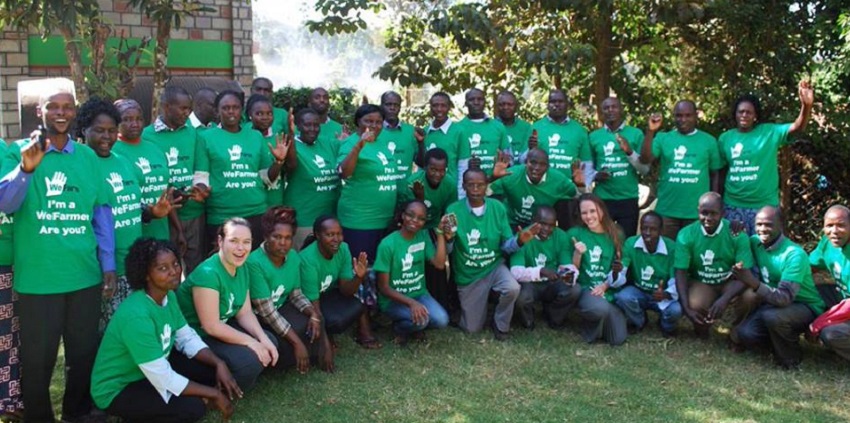Peer-to-peer (P2P) farming information platform WeFarm, which launched in Kenya in November last year after spinning out of an NGO, plans to launch in Tanzania in the next two months and is laying the groundwork for further expansion in Africa and Latin America.
Social enterprise WeFarm has developed a P2P knowledge sharing platform for small-scale farmers in rural communities, which allows farmers to ask questions via SMS shortcodes and receive answers from other registered users.
The platform is open to anyone, including experts and those wishing to do business with farmers, and is available in both English and Swahili. It already has 1,200 active users sending more than 2,000 messages per week, with these figures growing rapidly.
In spite of having only just launched in Kenya, however, the startup is already planning its expansion. Africa programme manager Teresa Nekesa told Disrupt Africa WeFarm will be officially launched in Tanzania – where it already has users – in the next two months, while a French interface is being built in readiness for pan-African expansion. A Spanish interface is already built for use in Latin America, where the company also has one full-time member of staff.
The company is targeting five million users globally, and plans to eventually monetise by selling SMS advertising to large agricultural clients.
The startup actually began life as a pilot project within an NGO – the United Kingdom (UK)-based Cafédirect Producers’ Foundation (CPF) – but in the summer of last year won GBP500,000 (US$750,000) at the Google Impact challenge, which has been used to scale up the WeFarm platform and make it more robust.
Nekesa said WeFarm had carved out a niche for itself as “an internet for those without internet”, with the SMS shortcode aspect of the platform tailored towards a market that predominantly uses feature phones.
“We realise that farmers have lots of knowledge but what is lacking is an opportunity to share this knowledge amongst themselves,” she said.
“It is not a top down thing, it is peer to peer. Basically farmers are crowdsourcing knowledge.”
WeFarm has relied on physical launches and the ambassador model to spread the word, with most of the focus on the Kenyan towns of Eldoret and Meru. Nekesa said the platform proved immediately popular, perhaps assisted by the groundwork laid in this respect by well-publicised predecessors such as M-Farm and iCow.
“The first launch that we did at Nandi Hills-Sireet we had about 400 users by the end of the day. It is very fast for us, it is instant,” she said.
“I think Kenya is really an easy market when it comes to the takeup of such products. More people get involved compared to other countries.”
She said this initial interest was more than matched by the level of activity farmers keep up after they have registered and started using the platform.
“People are excited to be part of it, but they continue engaging in the system and that shows they find value in it,” she said.
“The way people interact with the system is quite amazing. Every day I walk in and see new types of questions and answers.”
She said though WeFarm was working on the same space as the likes of M-Farm and iCow, it differentiated itself based on the fact it is interactive rather than a one-way messaging service.
“For WeFarm it is interactive. It is like a community where you can get to know each other, rather than just a one-way communication where you’re texting questions to an expert,” she said.
Nekesa also said opening farming up to communal sharing of information opened up more possibilities for innovative techniques to become more prevalent within the industry.
“If you go down to the farmer you will find that some have got really good innovative ideas of how to get around problems,” she said.


